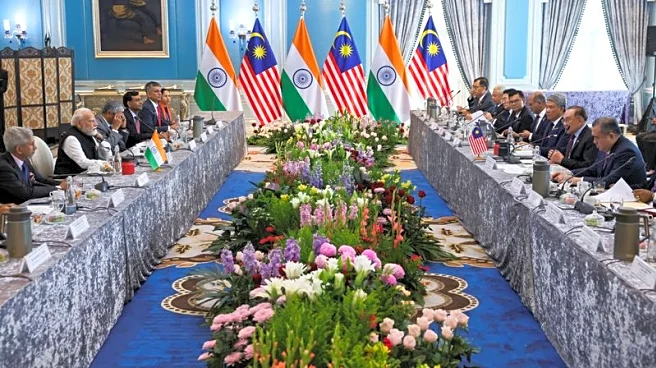What is the story about?
What's Happening?
China has announced stricter requirements for new energy vehicle (NEV) incentives, affecting automakers and vehicle standards. The new policy mandates that plug-in hybrid vehicles must have a minimum battery-only range of 100 kilometers to qualify for subsidies, up from the previous 43 kilometers. Additionally, battery electric cars must meet the new national standard GB 36980.1-2025, which is 11% more stringent than previous requirements. The policy aims to encourage manufacturers to invest in research and development, eliminate outdated products, and focus on high-quality development.
Why It's Important?
The tightening of NEV incentive requirements reflects China's commitment to advancing its electric vehicle industry and reducing emissions. By raising technical thresholds, the government is pushing automakers to innovate and improve vehicle efficiency. This policy shift could lead to increased investment in R&D and the development of more advanced and sustainable vehicles. As NEVs account for nearly half of all new car sales in China, the changes could significantly impact the global automotive market, influencing standards and practices worldwide.
What's Next?
Automakers may need to adjust their strategies to comply with the new requirements, potentially leading to end-of-year sales to clear out models that no longer qualify for incentives. The policy could drive technological advancements and efficiency improvements across the industry, with implications for international markets as Chinese exports expand. Stakeholders, including manufacturers and consumers, will need to adapt to the evolving landscape of NEV standards and incentives.
Beyond the Headlines
The policy change highlights the ethical and environmental considerations of transitioning to electric vehicles, such as the impact on resource consumption and emissions. It also underscores the importance of aligning industry practices with technological progress and sustainability goals. The shift may influence global energy policies and contribute to broader efforts to combat climate change.
















